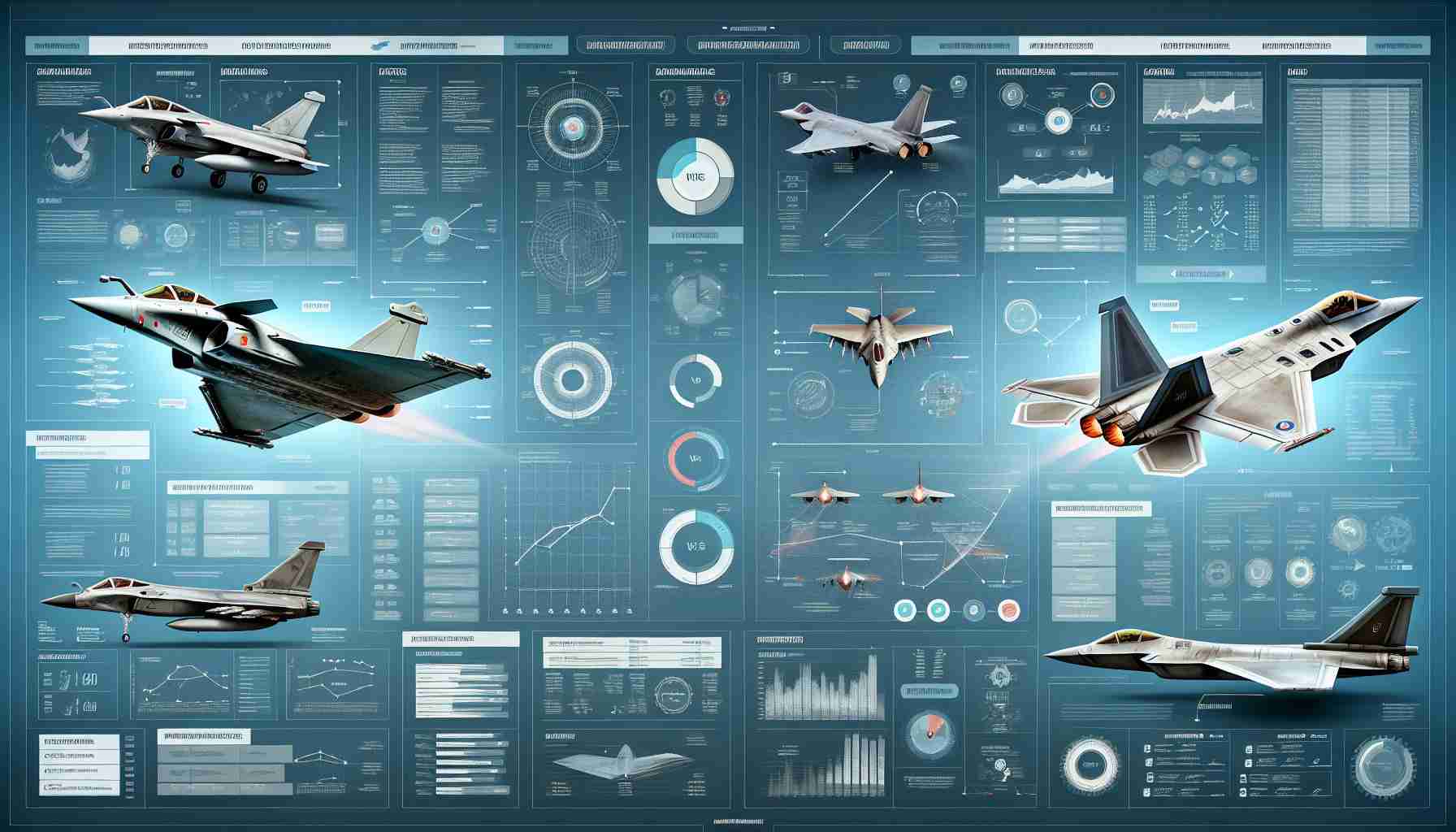The discussion surrounding modern fighter jets often brings two exceptional aircraft into focus: the French Dassault Rafale and the American Lockheed Martin F-22 Raptor. Both represent the pinnacle of military aviation technology, designed with different strategies, capabilities, and operational philosophies in mind. In this article, we will examine various aspects of both aircraft to assess whether the Rafale is indeed superior to the F-22.
Design and Development
The F-22 Raptor was developed in the late 1990s and first entered service in 2005. It was built primarily for air dominance with stealth capabilities being a key feature. The F-22 is known for its advanced avionics, supercruise capability, and high agility, making it a formidable opponent in combat scenarios.
In contrast, the Rafale was developed as a multi-role fighter and entered service in 2001. Designed to operate in various roles—air-to-air, air-to-ground, and reconnaissance—the Rafale offers versatility that the F-22 lacks. While not primarily a stealth aircraft, the Rafale utilizes a range of design features that reduce its radar signature.
Performance and Capabilities
When it comes to performance, the F-22 boasts a maximum speed of around Mach 2.25, and its supercruise capability allows it to maintain such speeds without afterburners, giving it a significant edge in sustained speed and fuel efficiency during air-to-air engagements. The F-22 also has thrust vectoring nozzles, offering enhanced maneuverability, especially in dogfighting scenarios.
On the other hand, the Rafale, with a maximum speed of approximately Mach 1.8, trades some raw speed for versatility in combat roles. Its excellent agility and ability to carry a diverse payload—including precision-guided munitions—allow it to perform exceptionally well in both deception and ground attack roles. The aircraft is equipped with advanced avionics and an integrated electronic warfare system, enhancing its combat effectiveness.
Stealth and Survivability
In terms of stealth, the F-22 is one of the most advanced stealth fighters currently operational. Its design minimizes radar cross-section, and its advanced electronic warfare capabilities allow it to engage threats before they are even aware of its presence.
The Rafale, while incorporating some stealth features, does not match the F-22’s level of stealth. However, it compensates for this through its advanced electronic warfare suite and sensor fusion capabilities, which allow it to detect and engage threats effectively even if it lacks the element of surprise that F-22 often enjoys.
Operational History
The operational histories of both aircraft also offer insights into their effectiveness. The F-22, while a highly capable aircraft, has seen limited deployment due to its cost and the United States’ focus on drone warfare and other aerial capabilities. It has participated primarily in air patrol and support roles.
The Rafale, conversely, has seen extensive use in combat operations in various theaters, including Afghanistan, Libya, and Mali. This operational experience has solidified its reputation as a versatile multi-role fighter capable of performing in diverse and demanding environments.
Conclusion
In conclusion, determining whether the Rafale is superior to the F-22 depends heavily on the criteria used for comparison. The F-22 excels in air superiority and stealth, making it unrivaled in aerial combat scenarios. Meanwhile, the Rafale offers exceptional flexibility, effectiveness in multiple combat roles, and proven performance in active service.
Ultimately, both aircraft embody the cutting-edge of military aviation and serve to fulfill different roles and strategic needs for their respective forces. While the F-22 remains unparalleled in its domain, the versatility of the Rafale ensures it remains a formidable competitor on the global stage.
Tips and Insights Related to Modern Fighter Jets
The discussion of modern fighter jets such as the French Dassault Rafale and the American Lockheed Martin F-22 Raptor opens up fascinating avenues regarding military technology, aviation strategy, and historical context. Here are some useful tips, life hacks, and interesting facts for aviation enthusiasts and the general reader alike.
Understanding Fighter Jet Roles
When exploring fighter jets, it is crucial to comprehend the various roles they fulfill. While the F-22 is primarily an air superiority fighter, the Rafale’s multi-role capacity allows it to conduct a range of missions. From air-to-air combat to ground attack and reconnaissance, understanding these roles can improve one’s appreciation of military strategy. For deep insights, consider visiting Defense News.
Stay Updated with Technology Trends
Aviation technology is continually evolving, with innovations that enhance capabilities and improve performance. Staying informed about advancements in stealth technology, drones, and unmanned aerial vehicles (UAVs) will enhance your understanding of the modern air combat landscape. Regularly check reputable sources like Army Times for the latest developments.
Join Aviation Forums and Communities
Engaging with other aviation enthusiasts can be both educational and enjoyable. Online forums and social media groups dedicated to military aviation often share exclusive insights, personal experiences, and technical discussions. Platforms like Airliners.net provide a rich community for sharing photos and discussions around aviation topics.
Consider the Impact of Defense Budgets
Understanding the impact that governmental defense budgets have on the production and deployment of fighter jets is crucial for a comprehensive view of military aviation. The financial factors often dictate the number of aircraft that are developed and maintained. For discussions on defense spending, check out Defense.gov.
Explore Historical Context
Both the F-22 and the Rafale have rich histories influenced by their respective countries’ military strategies and technologies. Studying the historical context of each aircraft can provide a deeper understanding of their developments, strengths, and weaknesses. Museums and aviation history websites often provide resources for enthusiasts—look at National Museum of the United States Air Force for comprehensive historical archives.
Learn About Air Combat Tactics
Enhancing your knowledge of air combat tactics can provide a greater appreciation of fighter jet capabilities. Tactics such as dogfighting maneuverability, formations, and engagement strategies differ significantly between models; understanding these can spark engaging discussions. The book “Air Combat: Dynamics and Artistry” can serve as a valuable resource.
Participate in Aviation Events
Attending airshows, military expositions, and aviation conferences can provide firsthand insights into fighter jets and their operations. These events often feature flight demonstrations, static displays of aircraft, and opportunities to talk to military personnel about their experiences. Look for local aviation events by visiting sites like AirshowStuff for calendars and announcements.
Follow Aviation Technology and Innovation
Keeping track of emerging technologies like artificial intelligence and their application in military aviation can add significant value to your understanding of future air combat scenarios. Resources like PBS Nova offer documentaries and articles exploring the intersection of technology and aviation.
Conclusion
Whether you’re an aviation aficionado or simply curious about military aircraft, these tips can help deepen your knowledge and enhance your engagement with the topic. Fighter jets like the F-22 and Rafale not only symbolize cutting-edge technology but also represent the strategic complexities of modern warfare. By expanding your understanding of these incredible machines, you’ll gain a more nuanced view of their roles within the military landscape.























